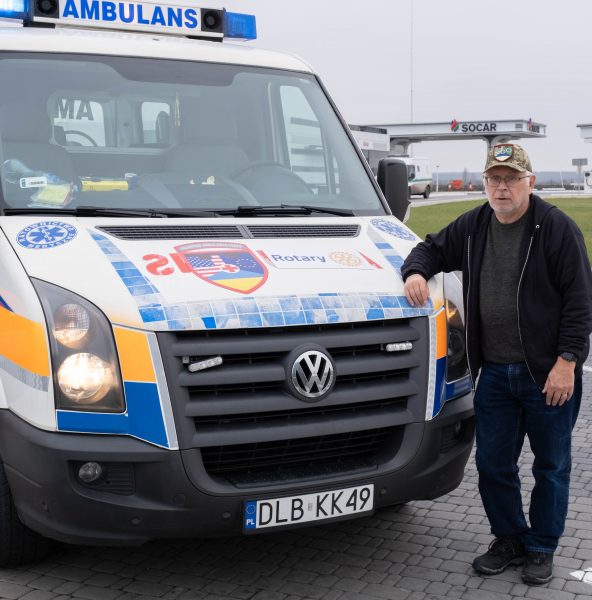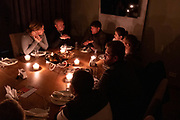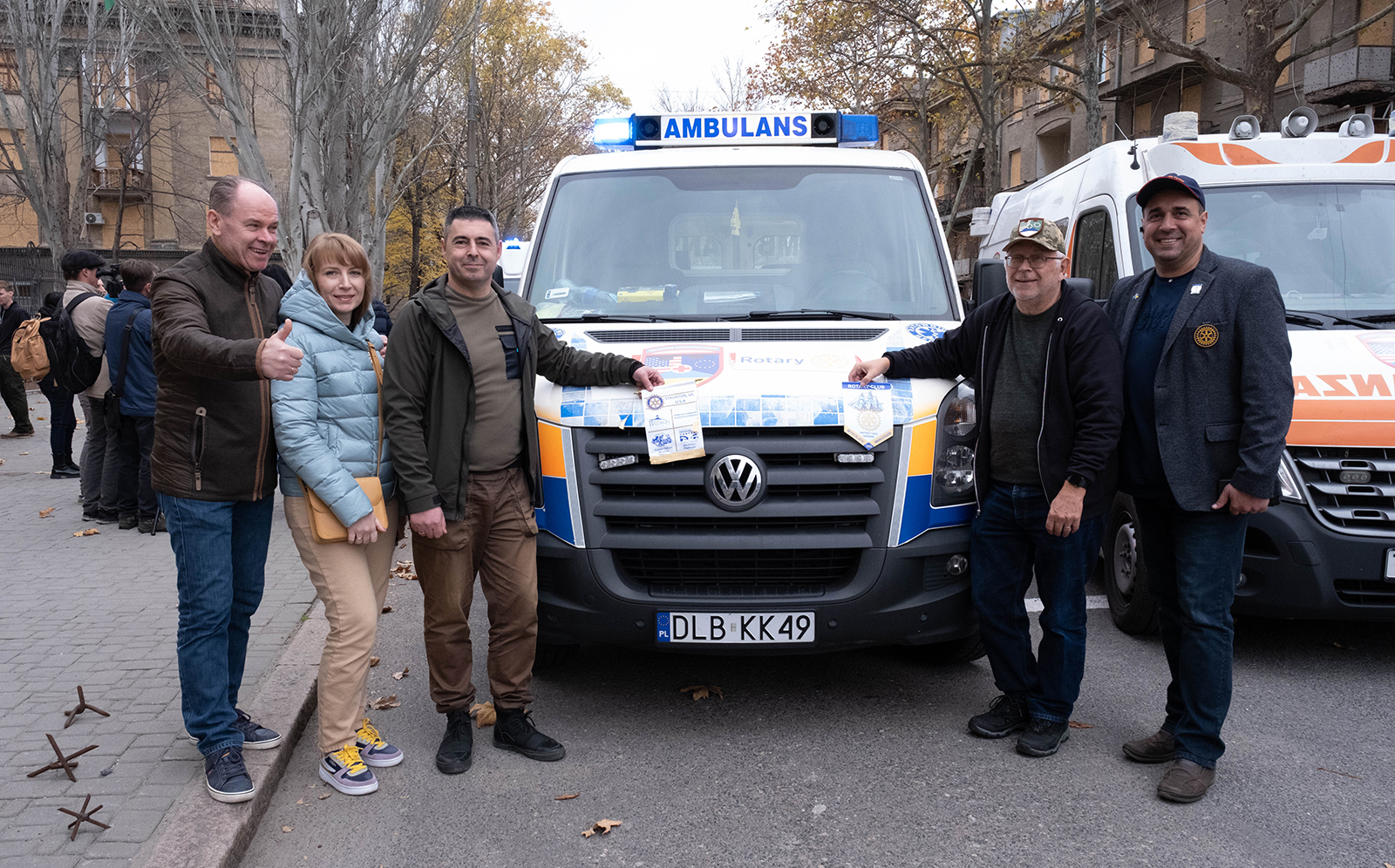Russia’s invasion of Ukraine in early 2022 met with international outrage, and the United States joined countries across Europe to step up sanctions on Russia while increasing aid to Ukraine.
Michael Quillen’s support for Ukraine was much more personal: He took the wheel, literally and figuratively, to deliver ambulances to the front line of the war.

The undertaking was launched in spring 2022 when Rotary International raised $15 million in relief funds for Ukraine. Longtime Rotary member Quillen worked with two Rotary districts in Virginia to apply for a $50,000 grant to buy three ambulances. The districts then teamed up with nonprofit Ukraine Friends for further resources and logistics.
A few months later, Quillen found himself in the driver’s seat of an ambulance at the border of Slovakia and Ukraine, part of an eight-day, thousand-mile trip. He had already spent two days traveling from his home in the Shenandoah Valley to Košice, Slovakia—by way of Washington, D.C., London and Vienna—before setting off on the journey with three ambulances packed with medical supplies and clothing to deliver along the route.
“I made sure that I drove the ambulance that had automatic transmission,” Quillen says in his understated fashion. “It was quite an experience.
“The trip seemed fairly normal at the beginning. Our only real sign of the war in the western part of the country was the occasional checkpoints manned by Ukrainians,” he says. “But the further east we traveled, the more destruction we saw.”
The group visited a youth center in Mukachevo, an orphanage in Chernivtsi and in Martynkivtsi, a World War II-era children’s summer camp—complete with Soviet-inspired murals—converted to a shelter. As the group neared Kyiv and then Odessa, the evidence of war was apparent.
A hotel just blocks from where the group stayed in Kyiv was heavily attacked a few weeks after their trip.
“We were there during the first major shelling of the infrastructure,” he says. “You could see fire and black smoke a couple of kilometers from the road. We also heard some anti-aircraft fire in Odessa.”
They turned over the ambulances to the Mykolaiv Oblast (province) on the Black Sea, in the shadow of a shelled-out city administration building.

Quillen recalls a memorable candlelight dinner with the mayor and other city officials in Bucha. A few days later, they enjoyed a dinner in Odessa with local Rotary members. “The Russians had been shelling the infrastructure, and the town didn’t have electricity,” he says. “The restaurant was using a generator.”
Looking back on his trip, Quillen remains struck by the spirit of the Ukrainian people. “I keep coming back to how fierce they were in their patriotism and determination,” he says. “I don’t know what winning this war will look like, but their attitude makes me think they are not going to lose.”
—Jan Read
